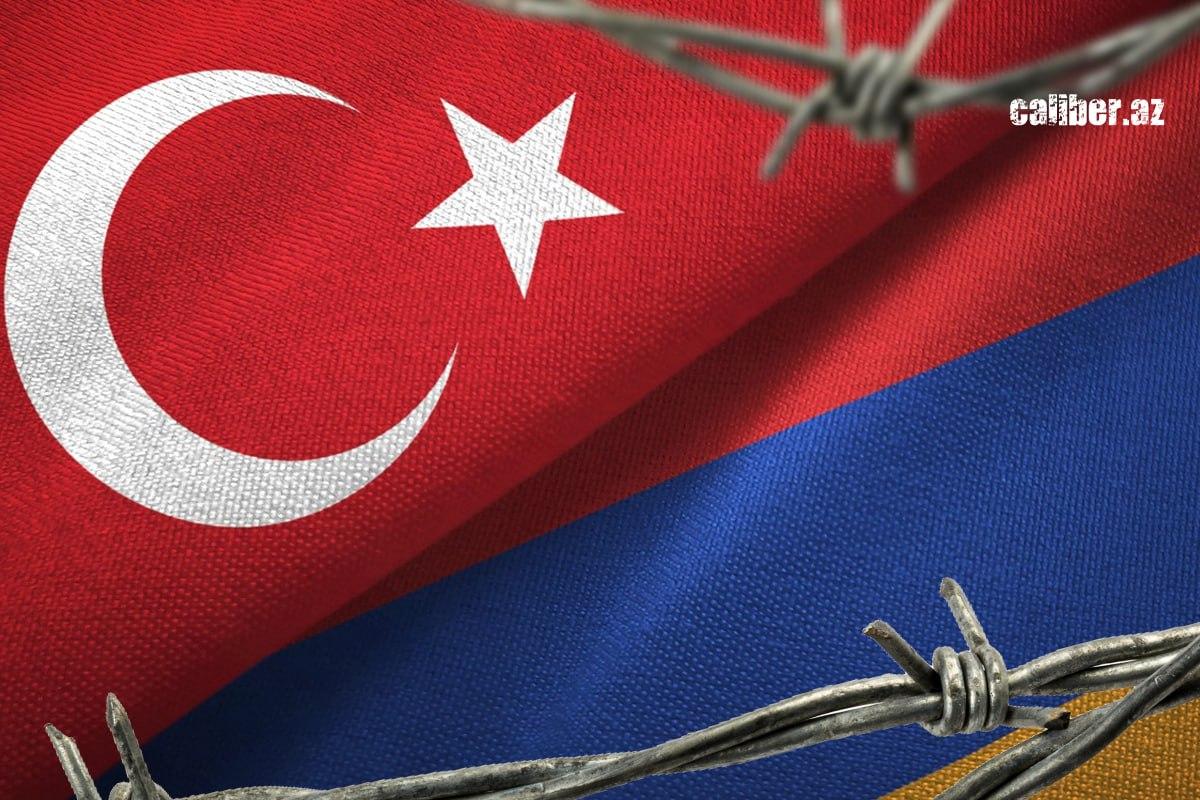A troubling scenario for Pashinyan Experts analyse Armenian PM’s upcoming visit to Türkiye
Armenian Prime Minister Nikol Pashinyan, during a meeting with Armenian media, confirmed his visit to Türkiye, which is scheduled for June 20. Meanwhile, the Armenian news agency 24news, citing diplomatic sources, revealed some details about the visit, including that Nikol Pashinyan allegedly intends to discuss with Erdoğan the signing of a peace treaty with Azerbaijan or another similar document. The possible location for the signing is even mentioned — Washington or the UAE.
So, what are the goals of the Armenian Prime Minister’s visit to Türkiye? What interests does Yerevan plan to push in Ankara? A Caliber.Az correspondent addressed these questions to Turkish and Israeli political analysts.

According to Turkish political analyst Kerim Has, this visit reflects the results of a rather complex and prolonged process of normalisation between Türkiye and Armenia, which, as is known, has been ongoing for some time.
“I would remind you that Pashinyan already visited Türkiye after the 2023 presidential elections, when Erdoğan was re-elected. At that time, he took part in relevant events, although no official high-level negotiations took place, despite discussions of several issues. Now we see that, although the border is still closed and full diplomatic relations have not been restored, political contacts between Ankara and Yerevan are strengthening. For example, recently Pashinyan personally called Erdoğan and congratulated him and the Turkish people on the occasion of the Gurban holiday. This, in my view, indicates the growing intensity of bilateral contacts and the gradual normalisation of relations.
Secondly, Armenia, it seems to me, has already realised that in security matters it cannot currently replace Russia with Western countries. Pashinyan does not yet have ironclad security guarantees from the West in case Russia withdraws its military bases at Armenia’s request or if Armenia officially leaves the CSTO. That is, despite Armenian leadership’s continued efforts to strengthen ties with Western partners, Yerevan lacks real security guarantees in this regard. Even Ukraine has not received such guarantees — and that is also an important factor,” the analyst emphasised.
Due to this, the Armenian authorities, having realised the lack of full support from the West, have begun to focus on normalising relations with their closest neighbours, primarily Azerbaijan and Türkiye.
“In fact, although belatedly, Pashinyan is fulfilling the conditions that Azerbaijani President Ilham Aliyev once outlined for signing a peace agreement. However, the Armenian Prime Minister seeks to present these steps as the result of his own strategic choice, rather than as a consequence of pressure from Azerbaijan or Türkiye. In this sense, Yerevan demands a certain degree of freedom of choice.

This is an attempt to show that Armenia’s foreign policy course is independent and deliberate. In the context of a changing regional balance and the weakness of traditional security guarantors — Russia and Iran — the Armenian authorities, in my opinion, seek to minimise risks by accelerating the normalisation process with Türkiye.
I also believe that Yerevan views Türkiye as a possible mediator who could potentially help facilitate the signing of a peace treaty with Azerbaijan in the future. Furthermore, Pashinyan probably wants the Armenian-Turkish and Armenian-Azerbaijani negotiation tracks to eventually merge into a single process.
There is also a third important context — the Iran-Israel conflict, which, in my opinion, has also influenced the final decision to visit, although the visit was agreed with the Turkish side even before the military actions between Israel and Iran began. Pashinyan’s visit was officially announced only very recently, and this could well be related to the escalating situation. Perhaps Yerevan believes that Azerbaijan may take advantage of the weakening position of the Islamic Republic of Iran, the vacuum of its influence in the region, and take steps to implement the Zangezur corridor project in Armenia’s Syunik region (Zangezur — editor’s note),” the political analyst said.
As Has noted, all these factors — the weakening of Iran’s external support, the strengthening of Türkiye, Azerbaijan’s military potential, and the lack of security — create a rather troubling scenario for the Armenian leadership.
“Pashinyan, it seems, is trying to minimise threats through diplomatic channels, and the visit to Türkiye reflects this strategy. Essentially, Ankara is the only regional actor capable of actively projecting its geopolitics in the South Caucasus. And the Armenian leadership, recognising this new balance of power, wants to feel more secure in this reality, including through rapprochement with Türkiye,” Has concluded.

Israeli expert, political science candidate, and editor of the Aziznews.com website, Yuriy Bocharov, believes that Armenian Prime Minister Nikol Pashinyan is travelling to Türkiye not from a position of strength, but out of a desperate hope to secure some form of foreign policy guarantees that could somehow stabilise his fragile domestic rule.
According to Bocharov, Armenia is experiencing a deep crisis of trust: according to recent polls, less than 15% of the population supports Pashinyan’s government, while the Armenian Church enjoys nearly full trust. This forces Pashinyan to rely not on internal legitimacy, but on foreign policy manoeuvres, including concessions.
“In essence, the visit to Ankara is a diplomatic attempt to soften Azerbaijan’s tough demands related to territorial issues, border recognition, and the launch of regional communications.
Pashinyan also hopes that Türkiye will be able to ‘push through’ a peace treaty option that will not formally look like a capitulation but will be accepted by Baku. However, the choice of signing locations — Washington or the UAE — indicates that Yerevan prefers to distance itself as much as possible from Moscow, while still maintaining ties with the West,” the analyst noted.
All these attempts, in his opinion, are more a gesture of political survival than a strategic initiative. Armenia enters negotiations not to end up in complete isolation, but on terms dictated by others, not itself.
Moreover, Azerbaijani President Ilham Aliyev’s visit to Türkiye on June 19, preceding Erdoğan’s meeting with Pashinyan, is by no means accidental. It is a clear signal that no steps Ankara takes in its relations with Yerevan are made without full coordination with Baku.
“Türkiye is a reliable ally, not merely taking into account Azerbaijan’s interests but jointly shaping a common regional strategy with it. During the Erdoğan–Aliyev meeting, there will undoubtedly be clear red lines established: no ‘half-capitulation,’ no ambiguous wording in the peace agreement, only direct recognition of Azerbaijan’s territorial integrity and the renunciation of claims enshrined in the Armenian constitution. If that is impossible — as Pashinyan has acknowledged — then at least there must be guarantees: communications on Azerbaijan’s terms, the elimination of the Karabakh narrative, and the gradual withdrawal of Russian troops from Armenian territory.
Aliyev is demonstrating strategic initiative, confidence, and leadership in the region. In fact, he is no longer negotiating — he is dictating the rules of the new regional architecture, in which Armenia has the right to participate only if it abandons its illusion of a special role,” concluded Bocharov.








